Lawmakers In Iran Not Representing People In Parliament: MP
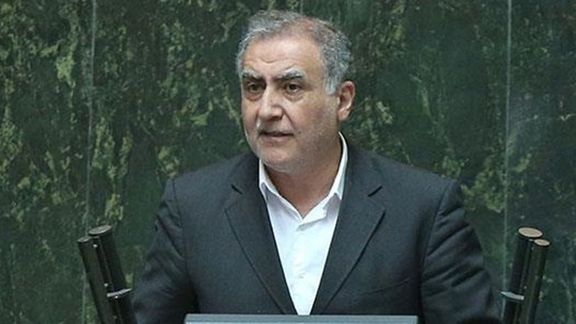
An Iranian lawmaker says majority of the people do not have their real representatives in parliament, and the Islamic Republic is facing a crisis in this regard.

An Iranian lawmaker says majority of the people do not have their real representatives in parliament, and the Islamic Republic is facing a crisis in this regard.
In an interview with ILNA news agency on Monday, Alireza Beigi said, “When the parliament speaks apart from the will, demand and interests of people and resists the transparency of votes, it cannot be transformative and change the course [of politics].”
According to official statistics, in the last parliamentary elections in Iran, majority of those eligible to participate boycotted the vote.
Beigi who represents Tabriz in parliament also talked about the disqualifications in the presidential and parliamentary elections, saying "In the elections, some assume people cannot decide, and we have to make decisions for them... We don't want to accept people are aware."
The Islamic Republic’s Guardian Council, a conservative constitutional body decides who can run for national office and usually disqualified most of the candidates.
Alireza Beigi emphasized that neither in economy nor in politics, "any role has been delegated to people".
During the nationwide protests following the death of Mahsa Amini in police custody in mid-September, parliament members issued a statement calling for the execution of the protesters. The statement was met with many negative reactions, including Mowlavi Abdolhamid, the outspoken Sunni religious leader in Zahedan, southeast of Iran.
Recently, a video on social media showed a young man in Ilam province west of Iran, telling a lawmaker that people do not want the Islamic Republic and the MPs should raise this issue in the parliament.
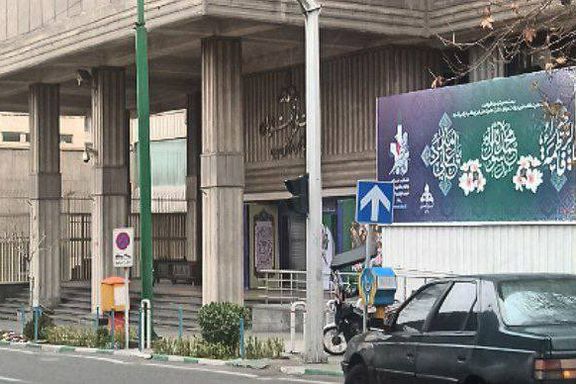
Damning evidence of shambolic management by the government has surfaced in Iranian media as freezing arctic weather and energy shortages have hit the country.
According to Rouydad24 website, during the past days the government has been so overwhelmingly surprised by the impact of a mixture of cold weather and a natural gas shortage that different officials announced several conflicting plans ranging from a total closure of private and public businesses and schools to shutting down factories and poultry breeding farms causing massive financial loss.
"Not only they do not know how to supply gas to homes, schools and businesses, they also don’t know how to handle the scandal," Rouydad 24 quoted a citizen in Tehran.
The government spent all Friday evening and Saturday morning correcting or cancelling previous announcements. In the meantime, parts of the country including the Khorasan region spent days in darkness and freezing cold. In Torbat-e Jaam, the local governor said no one in the government can do anything for the problem.
Social media users and other media outlets in Iran sarcastically noted that while Iranian officials including nuclear negotiating team member Mohammad Marandi and Oil Minister Javad Owji had predicted a difficult winter for Europe, no European country is facing a winter harder than what Iranians are currently experiencing.
But hardliner media such as Kayhan newspaper as well as hardliners on social media repeated fabricated stories about Europe's inability to cope with the winter cold. Kayhan said people in the UK are burning cat pooh to keep their homes warm!
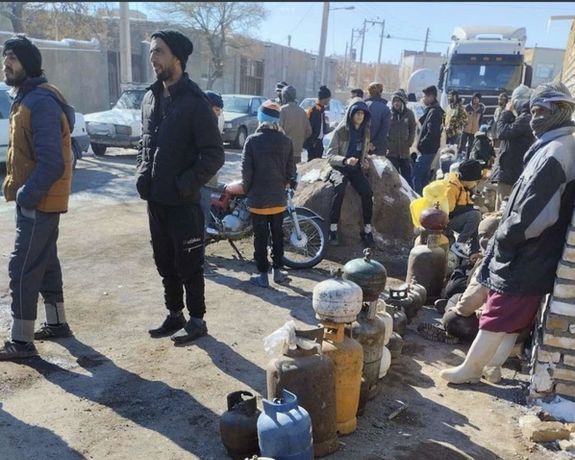
Visiting a gas supply center Sunday morning, President Ebrahim Raisi promised to solve the problem by no later than 2026! At the same time, people in many parts of Iran rushed to dangerous makeshift gas supply centers where profiteers filled their small capsules with liquid gas out of pressurized larger cylinders. Iran International TV showed citizens in Babol in northern Iran going from one gas station to another only to find out that neither gasoline nor natural gas (LNG) was available.
During the past two days all that the government could think of as a solution was closing down offices and businesses and suggesting that people should put on warm clothing. Even pro-government media such as the ultraconservative Farhikhtegan newspaper criticized the government.
Rouydad24 recalled a statement by Majles Speaker Mohammad Bagher Ghalibaf who had said to Fars news agency: "The government has no plan or objective about what it needs to do. And where it has a plan, it lacks a will to carry it out." This comes while the government understands it cannot produce enough gas to keep everyone warm during winters and to keep industry going.
Meanwhile, Khabar Online website attributed the problems to the government's wrong analysis and its failure to see that the winter was going to hit Iran harder than Europe. The website charged that Raisi is lost among his ill-informed advisers such as Mohammad Marandi.
Khabar Online recalled that Oil Minister Javad Owji had said last year that "Iran is capable of supplying gas to its neighbors and even to Europe." Later, like Marandi, the oil minister also predicted on live TV that "Europe will be facing a difficult winter." According to Khabar Online, Iranian "experts" working with the Raisi administration are still not quite sure whether Iranian are burning more gas at home or at their outdated industries. The website said that what the "experts" tell the government is based on "wrong data."
Iran has massive oil and gas resources, but it desperately needs investment and Western technology to utilize those resources. But this is not likely to materialize before Tehran can resolve its foreign policy impasse with the West.
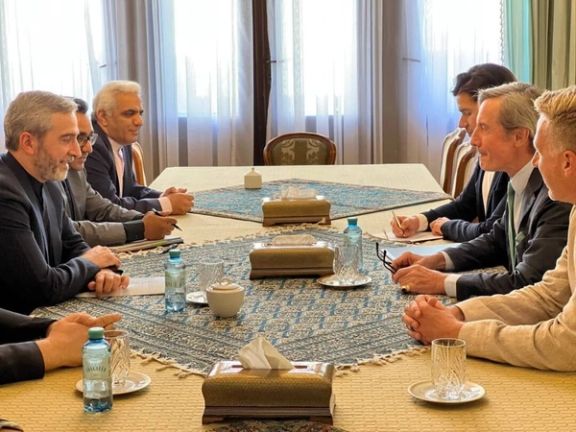
Two members of Iran's Expediency Council have called on the government to return to nuclear talks in a bid to evade the dangerous consequences of sanctions.
Mohammad Sadr has said in an interview with reformist daily Etemad that he had warned the Supreme Council of National Security and the heads of the three branches of the government about the adverse effects of failing to lift the sanctions on Iran's economy.
Sadr further told Etemad: "[President Ebrahim] Raisi told me that he has ordered his men to go ahead and further the negotiations, but he also said that there is serious opposition to the JCPOA in Iran by some security forces, those who benefit from the sanctions, and those who do not understand foreign relations."
Accusations that those who make money from sanctions by illicit trade or money laundering are not new, but it is the first time that Raisi has reportedly admitted it.
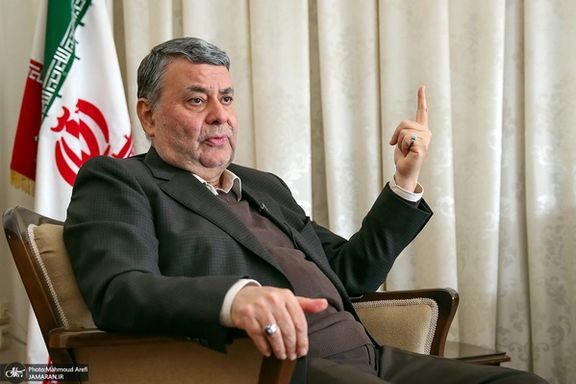
Meanwhile, in an interview with moderate conservative website Khabar Online, another Expediency Council member Gholamreza Mesbahi Moghaddam has also called on the Iranian government to resume the talks with Western governments to revive the JCPOA as the sanctions prevent foreign investments in Iran.
Both political figures also talked about the impact of Iran's involvement in the war in Ukraine. Sadr said: "Iran's impartiality in the war in Ukraine has been questioned. Peoples and governments in other countries are opposing Iran. Iran's foreign policy has not been successful, and the country's international status is weakening." Sadr added that "Iran should watch out for further diplomatic and international sanctions. The situation for Iran is very dangerous at international level particularly after the executions that have taken place."
Mesbahi Moghaddam on the other hand said that Iran should seek concessions from Russia as Moscow needs Iran to open a corridor to facilitate foreign trade as a country that needs to circumvent international sanctions.
Sadr noted that the United States has even accused Iran of committing a war crime by giving drones to Russia. At the same time, he added that the continuation of protests in Iran and the execution of several protesters has led more foreign pressures on Tehran. All of this, he said, has made an agreement with the West harder than ever before. Sadr further described the situation as an all-out economic, political and propaganda war against Iran.
He also pointed out that the regime needs to bring about a series of reforms, otherwise, it would be hardly able to properly respond to the ensuing consequences. Sadr added that Iran needs to adopt a realistic foreign policy. He pointed out that Tehran’s negotiating team has lost many precious opportunities because of the wrong policies it has pursued so far.
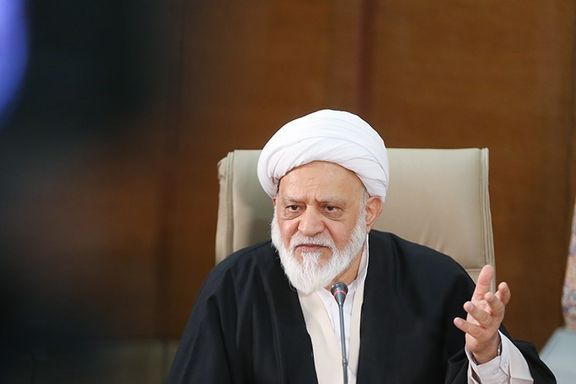
Politicians in Iran who criticize the government hardly ever mention that Supreme Leader Ali Khamenei has the last word in all major decisions, especially in foreign policy.
Sadr further pointed out that if the sanctions continue, the economic situation will worsen, and officials should stop the rhetoric about solving economic problems without an agreement over the nuclear program.
"I have talked about this with President Raisi and he is aware that a heavy pressure will be exerted on him if the problem of the JCPOA is not solved," he said, adding that some 30 percent of Iranians are already living in poverty. Some Iranians can no longer afford buying milk and fruits as inflation rises on a dayly basis.
He also warned that if executions and violation of human rights continue a dangerous international situation may occur for Iran and many countries might deport Iranian diplomats and recall their diplomats from Tehran. Meanwhile, the world public opinion has never been as seriously against the Islamic Republic as it is now.
On the other hand, Mesbahi Moghaddam charged that despite all the problems, the government in Iran has no plan or way out of the crisis. Explaining that some of his previous comments about this had annoyed government officials, he said: "What I meant was that the Raisi administration lacks a strategic vision.”
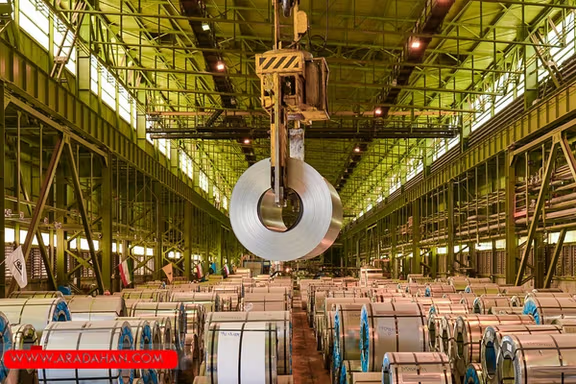
An Iranian industrialist says the gas and electricity shortage will probably lead to a two-million-ton decrease in the country’s steel production.
In an interview with ILNA on Sunday, Reza Shahrestani said there is a severe gas shortage in steel companies, adding that the steel industry needs 40 million cubic meters of gas daily, but at present their consumption has reached 15 million cubic meters per day.
He further added that almost 50% of the electricity supply for industries has been cut off too.
“Gas shortage has also led to electricity shortage because the current amount of natural gas does not meet the needs of power plants to produce electricity,” he underlined.
“It seems that the gas and electricity shortage will be more severe next year and if it continues like this. It will have a tangible impact on the production rate of all industries,” said the member of board of directors of the Steel Manufacturers Association.
“In my opinion, the people, who are in office at the oil ministry, are not up to the task, so we are witnessing inefficiency in all fields,” reiterated Shahrestani.
While the Islamic Republic officials predicted a bad winter in Europe, offices and schools in Iran have been closed for days due to a serious natural gas shortage.
Iran has failed to invest in its gas production sector, although it has the world’s second largest reserves. The distribution network also needs upgrades as more than 25 percent of the gas is lost during transfer.
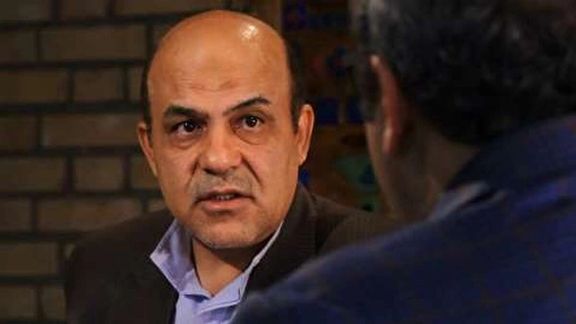
After Iran executed British-Iranian national Alireza Akbari reports say London is reconsidering its support for reviving the 2015 Iran nuclear deal.
Tehran announced on Saturday that it executed the former deputy defense minister, Alireza Akbari, after sentencing him to death on charges of spying for Britain’s MI6.
Before his death, an audio file was leaked where he claimed to have been tortured for 3,500 hours. Akbari said in the tape the regime had forced him to confess to crimes he had not committed.
Following the execution, The Sunday Telegraph said the UK is reconsidering its support for the 2015 nuclear deal known as the JCPOA, dealing another blow to the chances of reviving the accord. Britain has been a key player in the talks on restoring the Obama-era deal, abandoned by former US President Donald Trump.
The Sunday Telegraph cited senior – but unnamed -- British government sources as saying that the “landscape” has changed significantly since negotiations began in 2021, and as such Britain is now reviewing its options regarding its future involvement in renewing the deal.
“During the time we have been dealing with it, the landscape and proposition has completely changed – largely because of the behavior of the Iranian regime,” a government source said. The sources pointed out that the relationship with Tehran has been under severe strain in recent months due to its brutal repression of protests, ignited by the death in custody of Mahsa Amini. Meanwhile, Downing Street said “all options are under review” following the execution of Akbari.
Foreign Secretary James Cleverly has also announced a series of measures in response to the execution, including sanctioning the regime’s prosecutor general and summoning Iran’s charge d’affaires to convey Britain’s “disgust”. He said the sanctions show that the UK is serious about holding Iran to account for its “appalling human rights violations”.
The British ambassador to Iran has also been temporarily recalled to the UK for urgent talks about possible next steps. Cleverly is also set to travel to Washington DC on Monday for talks with US Secretary of State Antony Blinken where the two will discuss Iran.
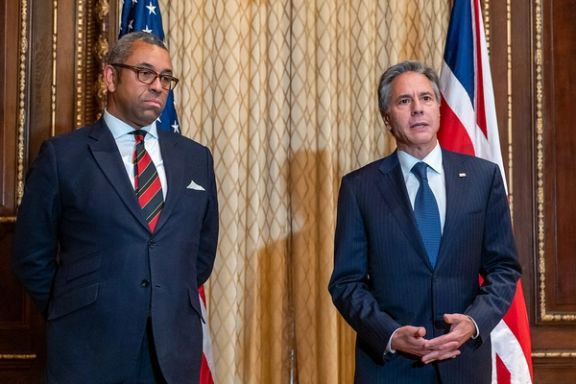
On Saturday, Rishi Sunak accused the regime of a “callous and cowardly act, carried out by a barbaric regime with no respect for the human rights of their own people”.
Ramin Forghani, Akbari’s nephew who fled to Luxembourg because of his opposition to the regime, has said that continuing the discussions with Iran would be “unthinkable”.
Britain is already drawing up plans to proscribe Iran’s Revolutionary Guard (IRGC) as a terrorist organization.
Britain has also received support from the United States, France and Germany, all signatories of the JCPOA, in its condemnation of the execution.
Since negotiations to revive the nuclear deal or JCPOA broke down in September, the Biden administration and its European allies have put the talks on the backburner and even President Joe Biden said in early November that “JCPOA is dead.”
Akbari’s execution is a major escalation in tensions between the West and the Islamic Republic, which were already sour over Tehran’s crackdown on nationwide antigovernment protests and its military support for Russia’s invasion of Ukraine.
Akbari had been deputy defense minister under the reformist President Mohammad Khatami, from 1997 to 2005. He was an advocate of the Iran nuclear deal known as the JCPOA that was eventually signed in 2015 with world powers.
He was also close to Ali Shamkhani, the secretary of the Supreme National Security Council of Iran. A source close to the Islamic Revolutionary Guard Corps has provided information to Iran International showing that the execution of Akbari is aimed at weakening Shamkhani’s position in the clerical regime. It seems that President Ebrahim Raisi, Intelligence Minister Esmail Khatib and Interior Minister Ahmed Vahidi are exerting pressure to remove Shamkhani from the post.
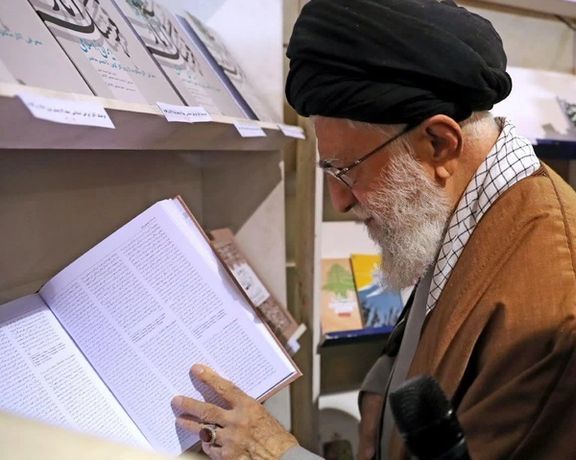
The Islamic Republic has announced its intention to change the content of textbooks in foreign language schools after criticism by Iran’s ruler Ali Khamenei.
Head of Non-Governmental Schools and Centers Ahmad Mahmoudzadeh told ILNA Sunday that “We will have a call to produce content of language books for schools, which will be implemented in line with the order of the Supreme Leader.”
"Language books that have nothing to do with our culture will be discarded," he added.
Changing the content of textbooks based on the government's propaganda policies has been implemented in the last few years upon the order of Supreme Leader Ali Khamenei. However, this is the first time that these changes will be applied to the language teaching books of private institutes.
Ali Khamenei had earlier criticized teaching English in general, saying in 2016 that "now we have reached to a point that English language learning has been extended to kindergartens".
Following his comments, ministry of education put a ban on teaching English at primary schools.
English is not included in Iran's official curriculum during the six years of primary school, but various non-governmental and a small part of public schools teach students English as extra-curricular subject, and these classes are not mandatory.
In recent years, some government officials have also suggested that instead of English, the teaching of Russian, Chinese and German languages should be supported in Iran.